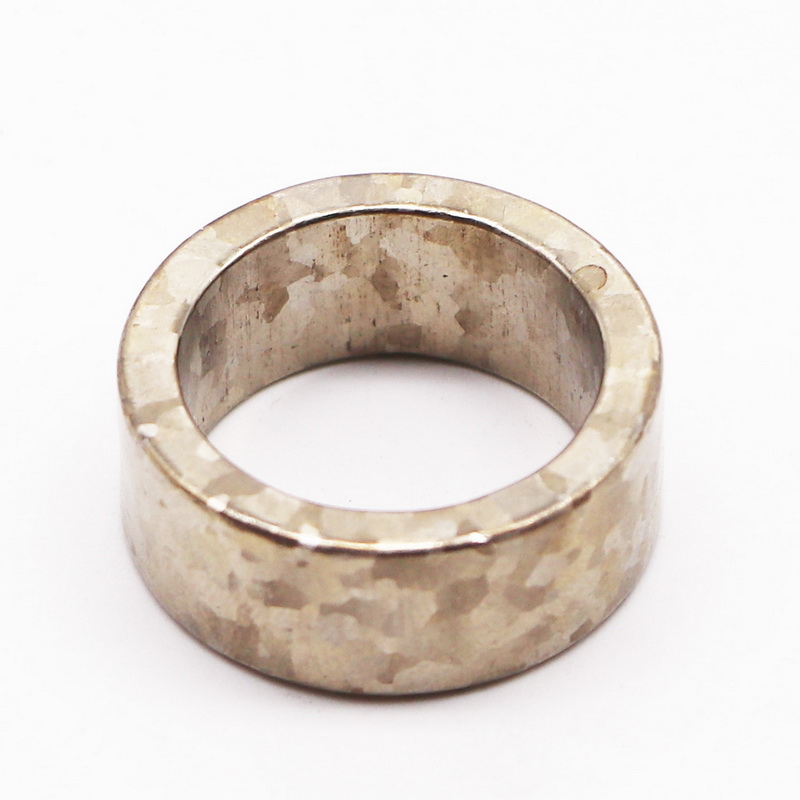

categories
recent posts
Why Titanium Alloys Are Widely Used In Aviation
The titanium alloy industry has entered the stage of mass production. Therefore, keeping in mind the progress made in this industry, the production capacity of sponge titanium has been greatly improved. Therefore, China has begun to build many titanium alloy production lines.

1. Application of titanium alloy in aircraft
Mainly used in the manufacture of aircraft and engines, such as forged titanium fans, compressor discs and blades, hoods, exhausts, and other structural components such as aircraft beams. The spacecraft mainly uses the high specific strength, corrosion resistance and low temperature resistance of titanium alloys to manufacture various pressure vessels, fuel tanks, fasteners, instrument bands, frames and rocket boxes. Titanium alloy sheet welded parts are also used in artificial earth satellites, lunar modules, manned spacecraft and space shuttles.
2. Reasons why titanium alloys are widely used in aviation
The top speed of modern aircraft reaches 2.7 times the speed of sound. Such fast supersonic flight will cause the aircraft to rub in the air and generate a lot of heat. When the flight speed reaches 2.2 times the speed of sound, the aluminum alloy will not be able to bear it. High temperature resistant titanium alloys must be used.
When the thrust ratio of an aero engine increased from 4 to 6 to 8 to 10 and the compressor outlet temperature rose from 200 to 300°C to 500 to 600°C, the low pressure compressor discs and blades were originally made necessary aluminum. Titanium alloy.
3. Analysis of processing characteristics of titanium alloy
First, the thermal conductivity of titanium alloys is very low, only 1/4 of steel, 1/13 of aluminum and 1/25 of copper. Due to the slow heat dissipation in the cutting area, thermal equilibrium is not favorable. During the cutting process, the heat dissipation and cooling effects are very poor, and high temperatures are easily formed in the cutting area. After machining, the part deforms greatly, resulting in increased torque of the cutting tool and rapid wear of the cutting edge. Reduced durability.
Secondly, the low thermal conductivity of titanium alloy makes it difficult to radiate cutting heat in a small area near the cutting edge, the friction on the rake face increases, the removal of chips is not easy, the cutting is not easy to emit heat, and it will accelerate tool wear. Finally, titanium alloys have high chemical activity and are easily processed at high temperatures with tool materials to form solutions and spread, which can lead to bonding, burning, and cutting.

The titanium alloys seem to have a lot of advantages. Let us see some of them.
When you compare these alloys to iron and steel, you will find that the alloy seems to have very high strength. It is also a better choice when you want to use it on components which would need both rigidity and strength alike. This is why you find its use in areas like aerospace, military, and even petroleum fields as well.
The next benefit is that titanium alloys have good thermal strength. Even when the temperature is raised to over five Baidu, the alloy will stay stable and the specific strength is not going to drop massively.
Another advantage has to be the fact that it doesn’t deform easily and has a good hardness factor. So, even when it collides with other metals, the shape is not going to get deformed.
Even at low temperatures, the mechanical properties of the alloy are going to be very well maintained. They are tough and the strength will increase as compared to normal temperature.
When present in the ambient temperature air, a thin layer gets formed over the titanium alloy. This helps it in preventing corrosion.
They have good plasticity and also great elastic-plastic ability too. Of course, it comes in handy when applying it to different commercial uses.
Titanium has low expansion coefficient. So, the tools are much more easily adaptable to fluctuation in temperature.
Owing to its nonmagnetic nature, some of the top military combat equipment make use of these alloys.
previous :
What is Aluminum?next :
Aluminum Alloy Shell Surface Processing Technologycopyright © 2026 Aluprofilescnc.all rights reserved.
friendly links :
Wall mount sensor faucet Color coated aluminum coil/sheet factory Industry Tools Manufacturer Medical Health Electrical Control Panel Box Fittings And Railing Systems pressure gauges Aluminum door and window Mu Metal Core Manufacturer guangyaaluminium Aluminum Window Supplier Custom Injection Molding